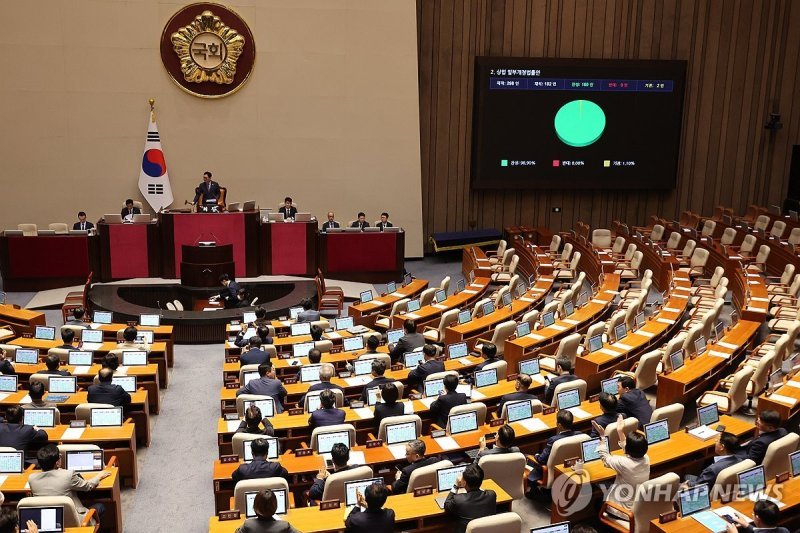[fn Editorial] Even stronger Commercial Act passed, need for supplementary legislation to defend management rights
- Input
- 2025-08-25 18:25:08
- Updated
- 2025-08-25 18:25:08
Focus on cumulative voting and separate election of auditors
Seek legislative balance through improvements in breach of trust crime
Seek legislative balance through improvements in breach of trust crime

The amendment claimed to resolve the Korea discount and stabilize the capital market. While the intention itself cannot be denied, it is regrettable that an idealism far removed from reality was reflected in the bill. The realistic waves that companies will face due to the two amendments to the Commercial Act are by no means light. As Gwak Gyutaek, a member of the People Power Party, pointed out, "Companies are in a situation where they have to endure the contradictory demand to 'win a gold medal while being handcuffed and shackled.'"
There is concern about the decision-making risks that our companies will face immediately. Cumulative voting appears to be a democratic procedure but cannot avoid criticism for undermining the principle of majority rule. Furthermore, it is pointed out as a toxic clause because it contains the risk of neutralizing corporate autonomy in the actual operation process.
Korean companies are frequently targeted by global activist funds. This amendment could open a pathway for external speculative capital with minority stakes to unfairly intervene in management. There is concern that it may become a playground for global activist funds that shake management rights in pursuit of profit.
According to a recent survey conducted by the Korea Chamber of Commerce and Industry on 300 listed companies, 74% responded that if mandatory cumulative voting and the expansion of separate election of auditors are simultaneously reflected, there is a possibility of a threat to management rights.
Since the amendment to the Commercial Act was passed under the leadership of the ruling party, the focus should now be on preparing institutional devices to minimize management risks. This is because the amendment to the Commercial Act carries side effects that increase the risk of management disputes and litigation. The legislative trend of the National Assembly is also leaning towards regulation of companies. Therefore, future legislative discussions affecting management should be gathered to prepare a system to stably defend management rights and pursue balanced legislation.
As part of this, efforts to find realistic supplementary measures before the full implementation of this bill are required. A flexible application plan reflecting the size of the company and the characteristics of each industry can be typically mentioned. Discussions on defense measures for management rights should also be actively pursued.
In particular, it is urgent to revise the system to ensure free business activities of companies. Specifically, it is to codify the 'business judgment rule' so that companies can make bold decisions for the future and to improve the breach of trust crime to fit reality.
The business judgment rule means that if a director makes a business decision based on sufficient information and fulfills their duty of care, it is not considered a breach of duty even if the company suffers damage. In the case of breach of trust crime, there is controversy that Korea imposes excessively heavy penalties and has ambiguous requirements compared to major countries.
The stabilization of the capital market and the enhancement of corporate competitiveness are by no means dichotomous concepts. However, as the recent two amendments to the Commercial Act have passed the National Assembly and gained speed, the focus is shifting towards capital market stabilization, losing balance. Even now, I hope to listen to the difficulties of the corporate field and seek supplementary measures to defend management rights exposed to risks.